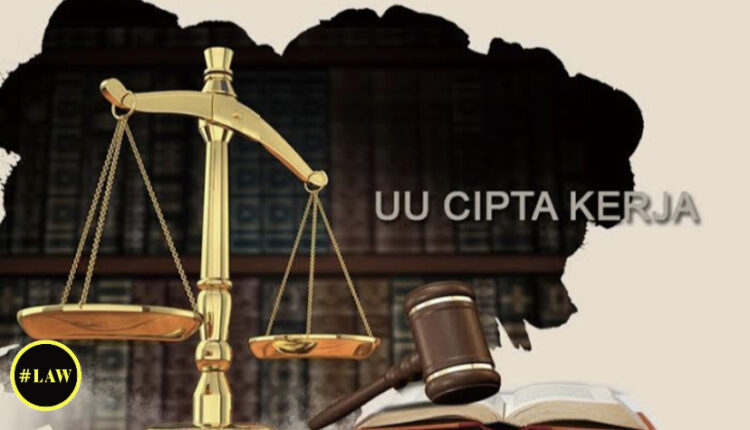UI Economic Observer: The Job Creation Law Supports Economic Growth and Creates Jobs
Jakarta – University of Indonesia (UI) Economic Observer, Fithra Faisal said the Job Creation Law can support Indonesia’s economic growth and can also create jobs. Apart from that, the ratification of the Ciptaker Law can become a legal umbrella for investors so that they can make investment comfortable in Indonesia.
The existence of the Ciptaker Law is one of the most important pillars to continue to drive export figures and also support economic growth in Indonesia in terms of institutional improvement, said Fithra Faisal during a Webinar with the theme “Creation Law for Whom”, which was organized by Communi & co, Friday 14/4/2023.
Fithra Faisal further added, the Ciptaker Law was able to create the widest possible employment opportunities, besides that it was also able to increase the economic growth target at a minimum, so that Indonesia would be released from the middle-class economy.
On the other hand, in the Job Creation Law, there are also aspects of equity and simplification. So far, investors still do not have a clear legal umbrella when they invest in Indonesia, and therefore they really need a legal umbrella in a short time, one of which is through the ratification of the Ciptaker Law, said Fithra Faisal.
The objective function of the Government and the goal of being a state is to improve people’s welfare, so this Ciptaker Law is for the community, industry and entrepreneurs, campuses and the government. All of these parties are the object of this rule, so the purpose of the Job Creation Law is for all of us, concluded UI Economic Observer Fithra Faisal.
Meanwhile, the Special Staff (Stafsus) of the Minister of State Secretariat (Mensesneg) Faldo Maldini said that so far there have been overlapping regulations, so the Omnibus Law on the Ciptaker Law was held to fix all of that.
The current world situation and condition continues to experience a crisis of economic uncertainty, including the wars in Ukraine and Russia, so there is a dire need for clear regulations to overcome all of this, said Faldo Maldini.
So far, efforts from the Government to be able to improve communication patterns are continuing. In addition, in the community there are still many discussions that are carried out but in fact there are still misperceptions, because not all of the points of the Ciptaker Law are pro against the oligarchy, because in fact companies cannot carry out arbitrary layoffs, explained the Staff of the Minister of State Secretary.
There’s more as if this law is said to be not pro-labor, even though in fact in this law everything has also been regulated because trade unions can speak freely. Broadly speaking, there are many bureaucratic rules that actually make it longer, complicated and more difficult, which has an impact on companies and MSMEs who now don’t need to be afraid of bureaucracy, said Faldo Maldini.
Meanwhile regarding TKA and TKI, it turns out that all of them have clear and regulated rules regarding the time, for them to transfer knowledge, when the time provided is over, they will return to their country of origin, said the Staff of the Minister of State Secretary Faldo Maldini.
Regarding the minimum wage, all objectives are regulated in the Ciptaker Law with the aim of making it even in all regions, stressed Faldo Maldini.
